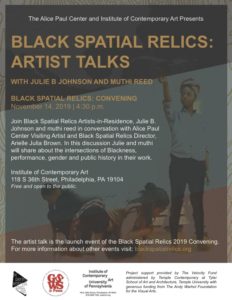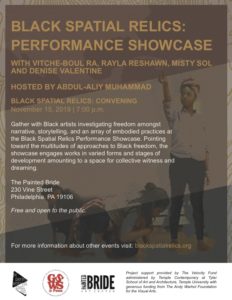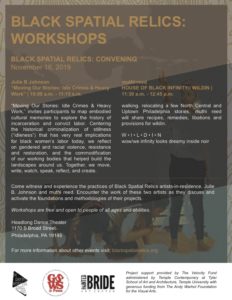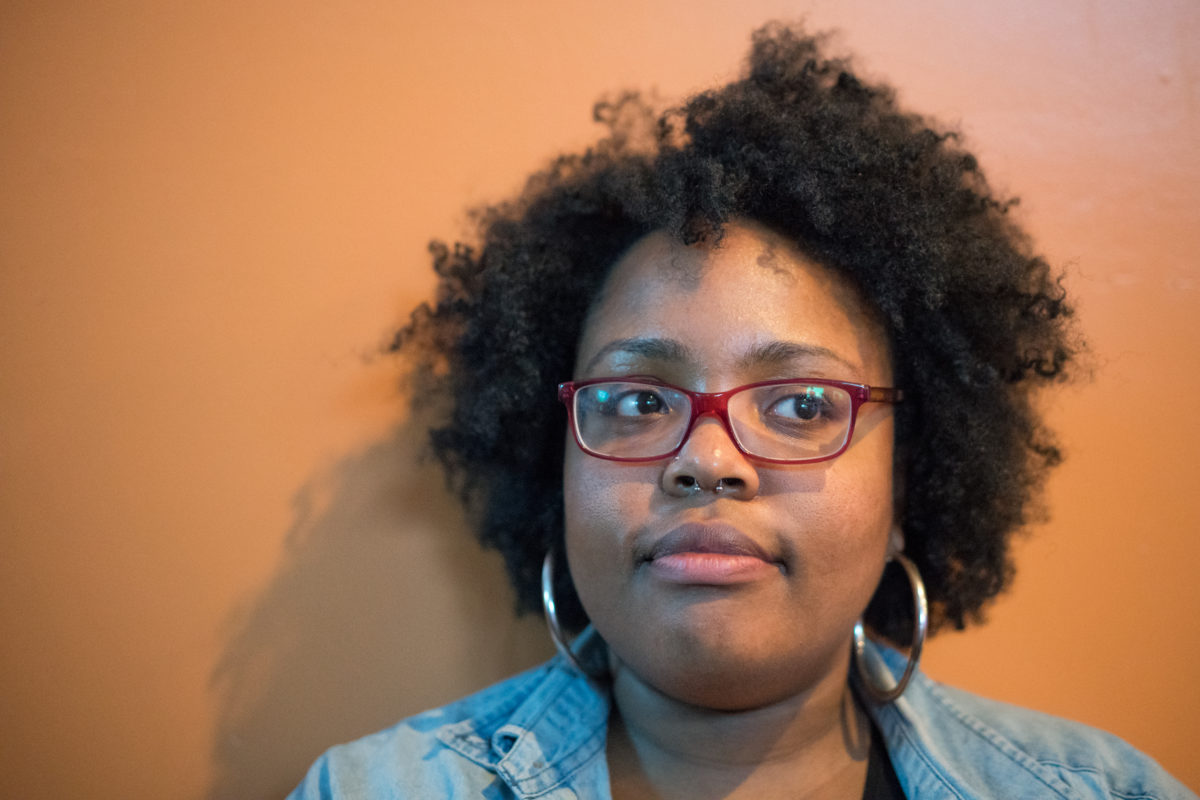Black artists explore the legacy of slavery and issues of justice through BSR
 November 14, 2019
Category: Featured, Medium, Purpose
November 14, 2019
Category: Featured, Medium, Purpose
Disclosures
This story is part of "Social Justice and the Arts" month of the Generocity Editorial Calendar.Black Spatial Relics (BSR) is a residency that supports Black artists in the development of new performance pieces that contend with the legacy of slavery and contemporary issues of justice and freedom.
According to Black Spatial Relics Director, Arielle Brown, performance is the artistic discipline that can best hold space for both the retelling of painful histories of enslaved peoples and their descendants, as well as the imagining of liberatory possibilities. 
“Performance is where we can talk about slavery and freedom. Embodied practice is an expression of that freedom and what joy can look like.”
Brown, who is also currently a visiting artist in the University of Pennsylvania’s department of Gender, Sexuality, and Women’s Studies, was part of the team that founded BSR in 2016, while she was a grad student at Brown University.
That year, BSR’s first two artists-in-residence, ChE and James Jorsling, convened at the Center for the Study of Slavery and Justice at Brown and performed their works during Brown’s commencement week in 2017.
This year’s convening, which will include an artist talk, performance, and workshops, will center and shed light on the creative processes for the two new performance pieces of current BSR artists-in-residence, Julie B. Johnson and muthi reed. 
Johnson’s piece, “Idle Crimes and Heavy Work,” speaks to the direct links between slavery and mass incarceration by exploring the narratives of Black women in this history through choreography and movement.
reed’s work, “HOUSE OF BLACK INFINITY // WILDIN,” envisions new formations of community across cultures and regions through experimental audio and film.
Situated in a current cultural landscape that includes the New York Times’ 1619 Project, the release of the Harriet biopic, and the Barnes Foundation’s 30 Americans exhibit, the relevance and necessity for a program like Black Spatial Relics is evident.
Some 400 years after the first enslaved Africans were brought to the Americas, their descendants finally have the financial and institutional support to produce works that create a more nuanced and rich discourse of the past, present, and future. While the creativity, innovativeness, and brilliance of Black folks was always a reality, the access and opportunities to be recognized as artists is still emerging. 
“It’s humbling to wake up everyday to be a cultural worker. Thinking about my ancestors who were the first cultural workers, literally culture builders that produced culture and built a culture for us,” Brown said. “That is fundamentally what I believe art to be. We come from a deep tradition of cultural workers and artists.”
Johnson and reed will share more about their respective projects at the BSR Convening opening event, an artist talk Thursday, November 14, at 4:30 p.m. at the Institute of Contemporary Art. They will each also host workshops about their projects on Saturday, November 16, at Headlong Dance Theater. 
There is also a performance showcase on Friday, November 15, at 7 p.m. at the Painted Bride Art Center that will feature some of BSR’s honorable mention applicants whose projects were not selected for the residency, along with local performance artists Vitche-Boul Ra, Rayla Reshawn, Misty Sol and Denise Valentine.
Brown has worked so hard to fundraise and ensure that BSR is an independent institution that can sustain itself and support generations of Black artists for years to come. The next Black Spatial Relics Residency application period will open in February 2020, and there are plans to expand the number of supported artists in the future.
###
For more about Black Spatial Relics and the BSR convening schedule, visit blackspatialrelics.org.
Trending News










